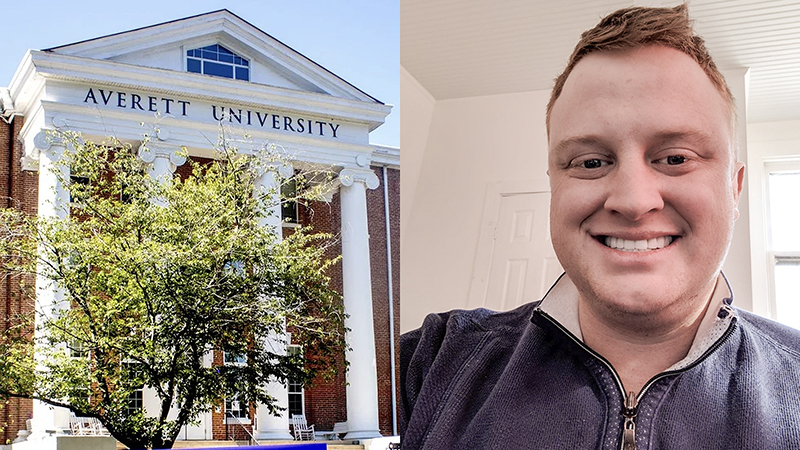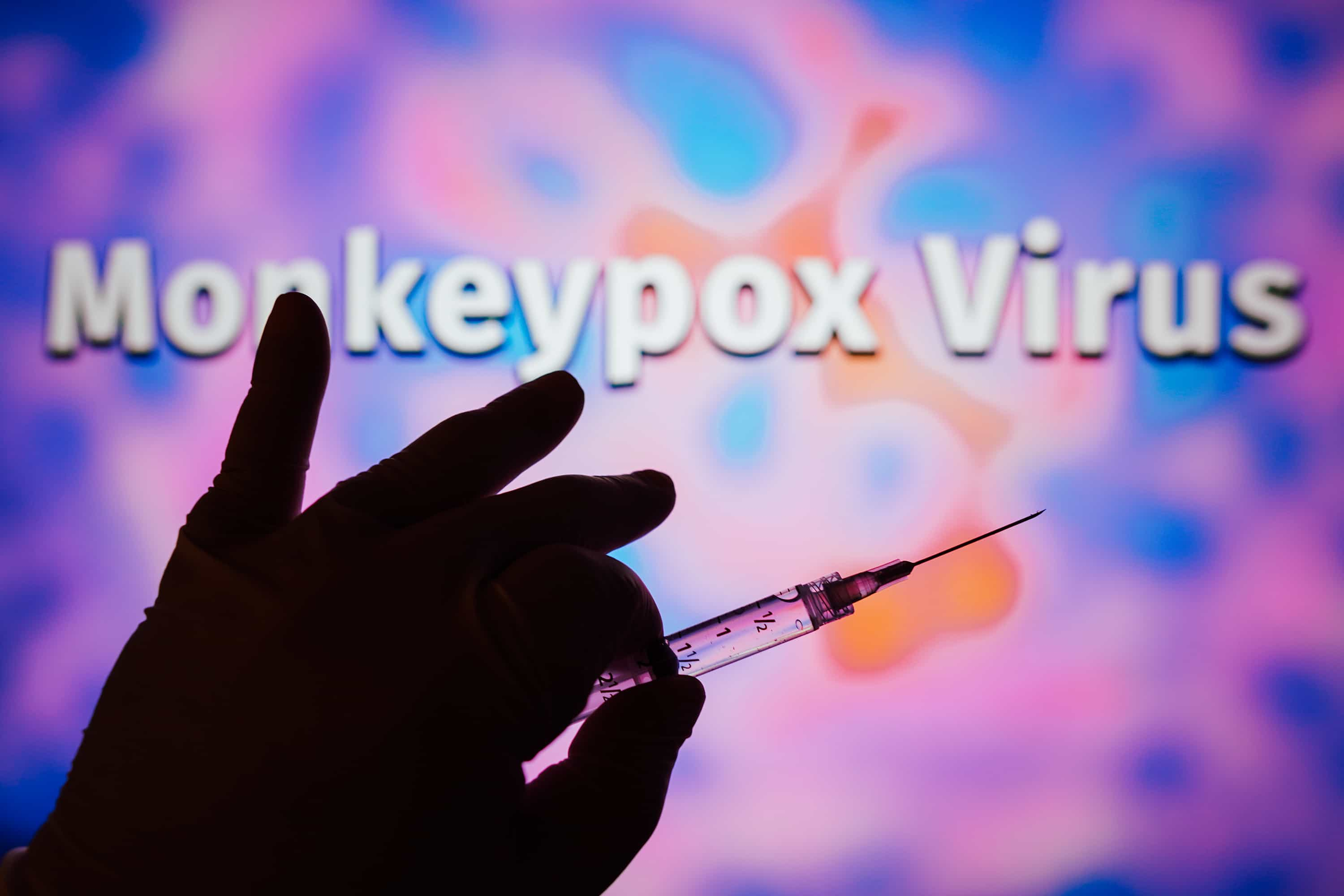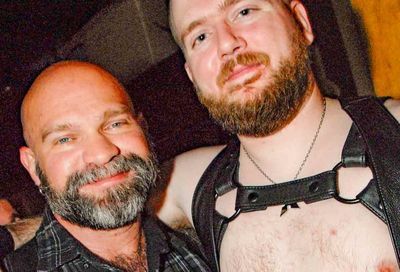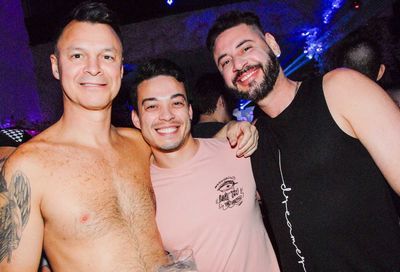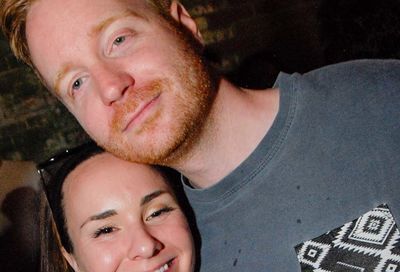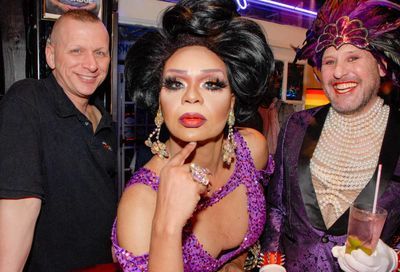Virginia’s New Resistance: Meet the LGBTQ Democrats fighting back against the GOP
Opposition to Trump and GOP dominance is pushing a record number of LGBTQ candidates to seek political office

“I really do think this is a second American Revolution that’s going on right now,” says Rebecca Colaw. “We are in a battle for our lives as Americans, and we need to fight back.”
A 56-year-old retired Air Force officer and lawyer from Suffolk, Va., Colaw is seeking the Democratic nomination for the 64th District seat in the Virginia House of Delegates. She is also one of eight openly LGBTQ candidates who have run or are currently running for the House of Delegates this year. It’s a record for the commonwealth, quadruple the number who ran for the House in 2015.
Colaw was inspired to run in part by the national Women’s March, which “killed my apathy,” and by how mortified she has been with the antics of President Donald Trump. As a lawyer, she is also alarmed at what she sees as the erosion of freedoms guaranteed by the U.S. Constitution.
“What’s happening in Washington, and what’s happening in the House of Delegates with the Republicans, is they’re not trying to promote freedom — they’re trying to oppress, to discriminate,” she says. “They’re trying to take the country backwards, which I think is contrary to the Founders’ beliefs that all people are created equal, and all are allowed to have freedom and happiness.”
She credits Trump as the driving force behind record numbers of Democratic candidates — LGBTQ Democrats, in particular — seeking office in Virginia this year.
“I think it’s almost impossible to separate the state issues from the federal,” she says. “We’re fighting for rights we’ve always had, that are trying to be taken away from us by inches, by people who are more concerned about keeping their jobs than helping the people that they serve.”
Despite running in a mostly rural district in Virginia’s Tidewater region, Colaw, like many of her fellow first-time candidates, isn’t hiding her sexuality — but she isn’t emphasizing it either.

“I really haven’t pushed it in my campaign, because that’s not why I’m running,” she says. “I’m running because I’m a retired military officer who’s mad as hell that my country is going down the drain, and the Republicans are the ones doing it, and it’s now time for me to fight back.”
Colaw isn’t the only Democratic candidate whose political awakening can be traced back to Trump. Dawn Adams, a nurse practitioner seeking the Democratic nomination in the 68th House District in suburban Richmond, says her candidacy is primarily rooted in the frustration she felt towards the Republican-led General Assembly and its political priorities. But it was Trump’s election that pushed her to finally enter the political fray.
“A lot of times, it takes something horrible or shocking to wake people up, to get people to really see, ‘Oh, this touches my life,'” says Adams. She believes some people were lulled into a false sense of security that Trump would never be elected president. “I think the awakening that happened from the shock of Hillary not winning was part of a greater awakening in people’s understanding of the relationship between public policy at the state level and their day-to-day life.”
Adams says politics doesn’t appear to play a significant factor in many people’s lives. It’s why there is often voter disengagement, particularly when it comes to state and local elections.
“I don’t fault anybody for that level of apathy, in some ways, because life is hard, and people are just working as hard as they can,” she says. “By the same token, once we are awoken to this sort of Molotov cocktail approach to government, it’s our responsibility not to fall back asleep.”
The 52-year-old admits she was previously reticent to divulge her sexual orientation in professional settings.
“I wish I had been that brave, but I wasn’t,” she says. “I grew up as one of those kids who was told everybody would hate you. I know, for me, what sort of broke that fear was marriage equality. It sort of made me feel like, ‘Oh, maybe it’s okay. Maybe I can be valued irrespective of my sexual orientation.'”
Adams emphasizes that she and the other LGBTQ candidates are primarily campaigning on economic, environmental, and educational issues. The issue of sexual orientation rarely comes up.
“I don’t know that any of us are running because of our gayness,” she says. “I think we’re running because the issues are so important right now and we just happen to be working in areas of policy and related fields where we feel like we can be of service and of help.”

Kelly DeLucia, a 41-year-old realtor from Yorktown, Va., was compelled to run for the General Assembly by a deep sense of duty to make her community better for her nine-month-old twin sons.
“Things are going on right now at the state level and the national level, where I just cannot sit on the sidelines and watch them go on,” she says. “And I’m not alone.”
DeLucia, who is the only Democrat running for the 96th District, will be one of four LGBTQ candidates who make it to the general election. More notable, however, is her distinction as the first Democrat to challenge Republican Del. Brenda Pogge (R-James City) since the incumbent’s first election a decade ago.
“There’s a very deep assumption that it’s an unwinnable red district, but the data doesn’t support that,” says DeLucia. “There’s a clear path to victory and I think Trump is doing most of our work for us this year. We have tons of Democrats in this district. The problem is we have such apathy with the Democratic voters because they haven’t had a candidate to go to the polls for in ten years.”
Pogge is best known for her staunch socially conservative views, and was infamously among a handful of five delegates who voted against an anti-bullying bill during the 2013 legislative session. In contrast, DeLucia, a former semi-professional soccer player with a long history of coaching and mentoring young people, is horrified by attempts by local school boards to undermine anti-bullying or nondiscrimination policies. She also disagrees with the Trump administration’s decision to rescind guidance allowing transgender children to be treated according to their gender identity.
“When I see things start to reduce the restrictions on discrimination against school-age children, that, to me, is deeply offensive, and it really makes me afraid for young people,” she says.
Other LGBTQ candidates have been motivated to run by the antics of their respective lawmakers, as much as by disgust with the Trump administration.

Ben Hixon, a computer programmer running in the rural 30th District in central Virginia, only moved to Culpeper from Seattle last August, when his partner got a new job. But after 30th District Democrats held a caucus in early May, instead of a primary on June 13, the 35-year-old finds himself — by a one-vote margin — the party’s official nominee.
“Running for office was not something I intended to do,” says Hixon, who describes himself as a “Libertarian Democrat,” with a hands-off approach when it comes to government intervention on social issues, including gun rights, marijuana legalization, and anti-gay legislation.
“For me, Trump winning first drew my interest to local politics, as it has for so many,” he says. “And then I discovered that our delegate here, Nick Freitas, was the sponsor of that anti-LGBT bill, HB 2025, which says the government can give money to groups that discriminate against LGBT people. A Republican governor would have signed that, which means my tax money, my partner’s tax money, can go to groups that would refuse service to me. That made me angry. That was the trigger for me to run.”

For Danica Roem, the first transgender person to seek a General Assembly seat in the commonwealth, the decision to run came out of her dissatisfaction with incumbent Del. Bob Marshall (R-Manassas). A 32-year-old journalist and lifelong resident of Manassas, has been harshly critical of Marshall, whose top priority this session was introducing a North Carolina-style “bathroom bill” that would restrict transgender people’s access to public restrooms.
“Marshall filed 41 bills [during the 2016 session], and he only got one of them passed,” she says. “He has 25 years of seniority in the majority party, and he only got one bill passed. That’s an effective rate of a rookie member in the minority party.”
(During the 2017 legislative session, Marshall introduced 29 bills, 27 of which failed to pass.)
While Roem has largely focused her campaign around fixing Route 28, economic development, and education funding, she refuses to run away from her identity.
“In Prince William County, sometimes we can be a little bit timid with how we talk about LGBT issues and how we talk about LGBT rights” she says. “However, we have to recognize that Virginia is not the unwelcoming state that a lot of us either may have perceived it to be or think it still is.”

Del. Mark Levine (D-Alexandria), one of two openly gay House incumbents up for re-election this year, says that voters’ reactions to LGBTQ candidates will largely depend on the district. For instance, Levine, who represents a very liberal district, says his sexual orientation was viewed as a positive attribute when he first ran for office in 2015.
“There are districts where being LGBT is a plus, districts where it’s a minus, and districts where it’s a wash,” says Levine. “But it can’t be the primary focus for these candidates. I give all these candidates credit for finding issues they believe in, and not hiding their orientation, because there was certainly a time when that was common.”
Levine is running unopposed in both the primary and the general election, and is particularly excited about rallying Democrats to come out and vote this November. He believes it is a way to demonstrate their opposition to Trump.
“We have 100 delegate districts, and 51 of them voted for Hillary Clinton, even in districts that are terribly gerrymandered,” he says. “So if all the people who voted for Hillary in 2016 simply come out and pull the lever for all the Democratic candidates, we have a majority in the House of Delegates, and then we can start not just stopping really bad stuff, but actually passing really good stuff.”
The election of Trump has provided progressives, liberals, and even moderates with a tough lesson of what can happen when they aren’t politically engaged, says Levine. “Sometimes it takes you to be hit on the head by a 2×4. With Trump, we’ve been hit by a 2×4 with a nail in it. And we’re bleeding. This is a very dangerous man.”
Luckily, Virginia Democrats appear to have learned that lesson, putting up challengers in 52 of 66 seats currently held by Republicans.
“I think people are beginning to realize that state elections matter. We actually, at the state level, probably have more control over your individual life than at the federal level,” says Levine. “When it comes to gay rights, just look at ENDA — it’s been stalled [in Congress] for decades. The real action is happening on the state level. Marriage equality, we won on the state level. So the state battles matter.”
Asked what LGBTQ newcomers should do if they advance to the general election after Tuesday’s primary, Levine has solid, strong advice: “Go out and defend Democratic values. Find some issue that you’ve worked on, that your heart’s in. Talk about the good you’ve done in your community, talk about your achievements. Obviously, talk about issues.
“Virtually all of these Republicans have cast terrible votes. Call them out. Run on your opponent’s record. As far as being gay or lesbian, don’t hide it. Treat it as a matter of fact. You don’t have to say, ‘I’m gay.’ Just introduce your partner, and they’ll figure it out.”
The Democratic primaries for the Virginia House of Delegates, as well as statewide office, are on Tuesday, June 13. To find a polling place, or for more information, visit elections.virginia.gov.
Support Metro Weekly’s Journalism
These are challenging times for news organizations. And yet it’s crucial we stay active and provide vital resources and information to both our local readers and the world. So won’t you please take a moment and consider supporting Metro Weekly with a membership? For as little as $5 a month, you can help ensure Metro Weekly magazine and MetroWeekly.com remain free, viable resources as we provide the best, most diverse, culturally-resonant LGBTQ coverage in both the D.C. region and around the world. Memberships come with exclusive perks and discounts, your own personal digital delivery of each week’s magazine (and an archive), access to our Member's Lounge when it launches this fall, and exclusive members-only items like Metro Weekly Membership Mugs and Tote Bags! Check out all our membership levels here and please join us today!




